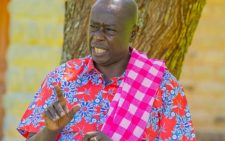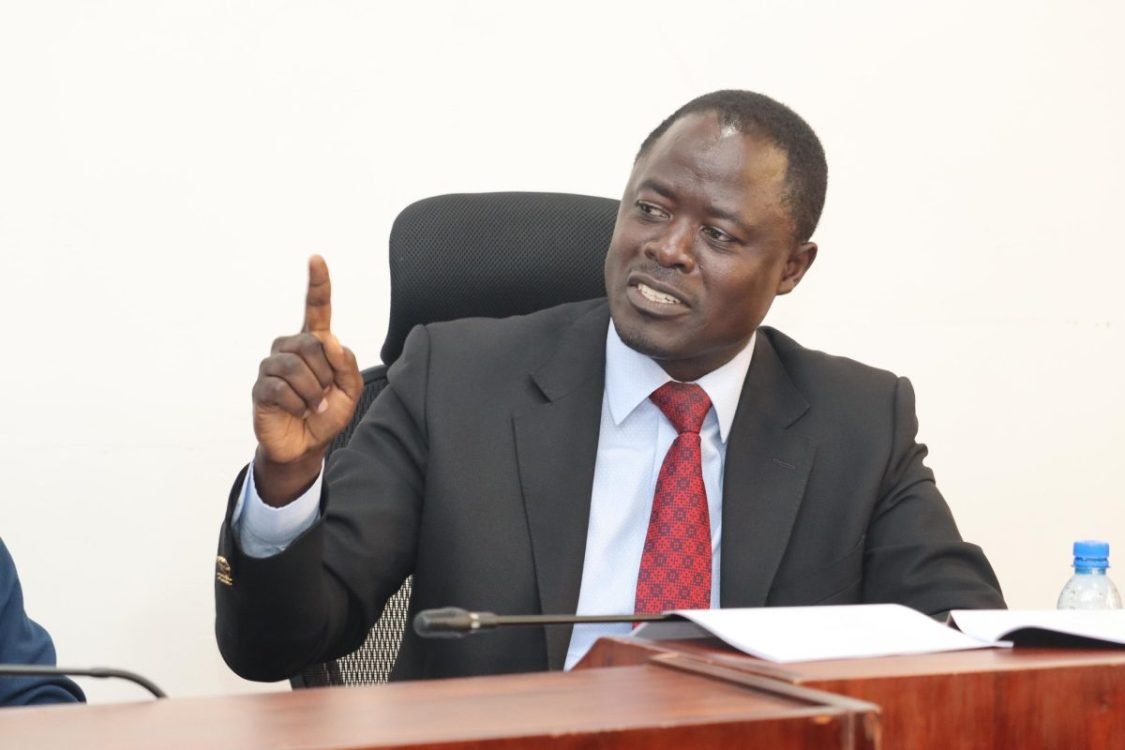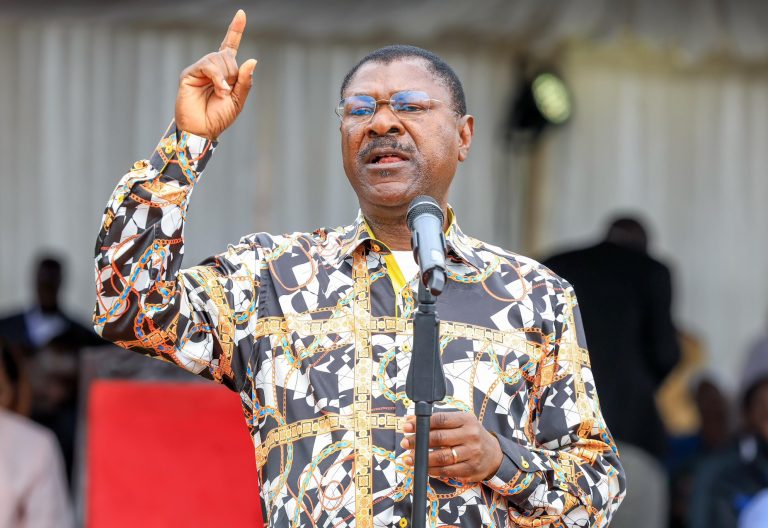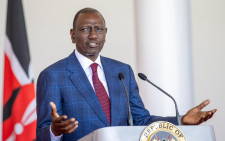I’m nobody’s stooge, states Lusaka
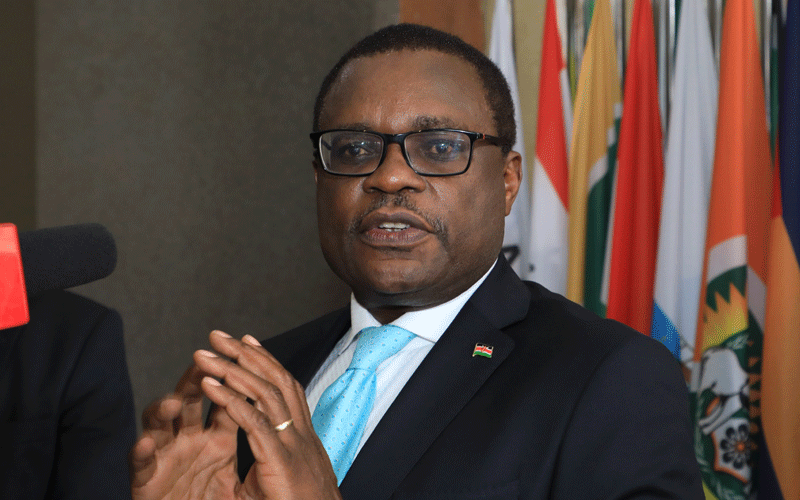
For the better part of 2020, Senate Speaker Ken Lusaka has been in the eye of a storm over a variety of both legislative and political issues. In an interview with Revise Editor Mukalo Kwayera, the former Bungoma governor reflects on the crucial-but-not-so-smooth docket in the Upper House he leads. Excerpts:
For the better part of 2020, Senate Speaker Ken Lusaka has been in the eye of a storm over a variety of both legislative and political issues.
In an interview with Revise Editor Mukalo Kwayera, the former Bungoma governor reflects on the crucial-but-not-so-smooth docket in the Upper House he leads. Excerpts:
Question: The outbreak of coronavirus has totally altered the traditional way of living the world over. How has it affected you officially and personally?
Answer: Like everyone else, Covid-19 has greatly affected my way of doing things. Inevitably, I have had to adopt to the changes.
Officially, I now conduct most of my responsibilities virtually through Zoom, Skype or other channels of communication.
Parliament is now fully ICT-compliant. This has enhanced the level of our communication and execution of responsibilities digitally.
At a personal level, the Covid-19 guidelines have confined me. It has denied me all my social freedoms outside my homestead. Again, here communication is mostly virtual.
It is as if I am rehearsing for retirement. It is a bit boring. However, the good side of it is that as a family, we now have more time to be together and bond. We eat together more regularly and discuss family issues with more frequency.
As a holder of the Office of Speaker of the Senate, all was well until January this year, when impeachment of then Kiambu Governor Ferdinand Waititu came to the House and from then, things have not been the same for you. Do you agree?
My experience in public service played a key role. I long learnt the art of navigating through difficult situations.
Of course, there is a perception that the Senate has been hotter this year than any other time since the Waititu affair.
That may not be entirely true. I let the House make the decision on any matter. In my responses, I try to balance.
I give equal chances to both sides of a debate and arrive at verdicts according to how the parties have argued and in accordance with the Standing Orders of the House and the relevant legal advisories. I do not impose decisions.
Is the seat hotter now than you found it?
Of course yes. Someone once said that if you cannot withstand the heat in the kitchen, do not aspire to be a cook.
Issues to do with revenue allocation are very polarising. Members speak on behalf of their people.
As a result, you can witness the debate being divisive at times. At such moments, the House and my seat both become hot. It is my duty to ensure that the House unites the country rather than divide.
Your critics say that some of your decisions have been marked by inconsistencies.
They cite the debate regarding the ouster of your own Senator Moses Wetangula (Bungoma) as Leader of Minority, the Waititu case, the removal of Senator Kipchumba Murkomen (Elgeyo Marakwet) as Leader of Majority and Senator Susan Kihika (Nakuru) as Majority Whip as well as the Revenue Allocation Bill, where you are alleged to have conveniently changed goalposts to suit the whims of some external forces. Are you your own man, Mr Speaker?
At no time has any of my rulings been influenced externally. Consultations take place but we remain independent.
We fully subscribe to the principle of separation of powers between the three Arms of Government. I let Standing Orders guide me. The Hansard is there to acquit me on this. I do nobody’s spade work.
Some of those critics argue that your rulings are largely based on the sentiments of or advice from Siaya Senator James Orengo and Wetangula, both of who you reportedly accord more time to contribute to House debates. Is that the case?
Senate is a House of debate and consultations. It is true I consult them, just like I do with other senators, both elected and nominated.
The two senators you have mentioned represent the two sides in the House which one must listen to, in order to know the overriding view and mood of the House. Sometimes we agree.
On others we do not. Wetangula is a very experienced politician who has served both as a Deputy Speaker of the National Assembly and as Leader of Minority in the Senate in addition to being a lawyer by profession.
The same applies to Orengo who is now the Leader of Minority. We also have senator George Khaniri who is also very experienced with an unrivalled mastery of the Standing Orders.
You have other lawyers like Murkomen, Irungu Kang’ata, Stewart Madazyo, Susan Kihika, Okong’o Omogeni and elders like Amos Wako, Sam Ongeri and Yusuf Haji all who offer their views on certain crucial matters.
I listen to all of them before issuing my verdict as provided by the Standing Orders and the law. What people think is my weakness has actually turned out to be my strength.
Like Waititu, Anne Waiguru and now Mike Sonko, your office is now being termed as the kichinjio cha ma gavana (Govenors’ slaughter house)Is that the feeling you get?
Not at all. Impeachment of governors as well as the President and Deputy President is a constitutional matter vested in the Senate. The issue of impeachment lies in the hands of senators.
The bar for removing an impeached governor is so high. When senators agree on how to vote, the debate can go in any direction.
When they are not, the senators can go wild and even lead to chaos. So, as the Speaker, I must be very alert, sensitive and diplomatic enough to arrest raging emotions.
The ruling Jubilee Party to which you belong and which has a majority is a House on fire, with President Uhuru Kenyatta and his deputy pulling in different directions. How has the rift between the two affected your work?
I am not aware of any differences between the two leaders. As a Speaker, I do not see political parties but see and listen to members.
We are not in any way involved in what takes place outside the Chambers. Take for example the debate on revenue allocation.
Members across political parties took different positions on the matter depending on the interest of their electorate. The Senate is intact and the Speaker of the Senate is on top of things.
The debate on revenue allocation evoked a lot of emotions and some members like Murkomen did not have kind words for you. Did that hit you below the belt?
Revenue allocation is a very sensitive matter that is close to heart of each and every senator.
Members are allowed to express themselves in the manner that they can, so long as they do not violate the Standing Orders. The Speaker’s position is not for the faint-hearted.
How does your office and the controversies it has stoked this year affected your family?
My family has given me a lot of support all along. However, my son is very critical.
He follows politics closely and at time he will ask me questions regarding hot debates in the House and how and why I had to take certain decisions.

